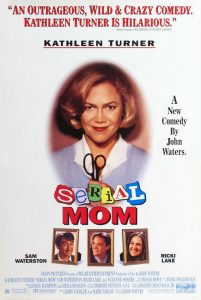*Apologies to Fyodor Dostoyevsky
I’ve been musing about the changes in telephone customs over the course of my life.
In the 70s (in Ohio) social performance around phones centered on etiquette. Except in an emergency or when expressly invited, you called between 9:00 am and 9:00 pm, except between 6:00 and 7:00 pm, the supposed dinner hour. Calling during dinner hour was height of rudeness. Calling after 9:00 pm was unthinkable. The only permissible ways of answering were to state your name or to chirp “hello?” in a pleasant voice. If it was a wrong number, you politely informed the caller and assured them that they were forgiven before gently replacing the receiver. You limited your phone call to 30 minutes max. Other people might be trying to call.
As teenagers we made fun of these rules, dreaming of the day when we had our own number. Smartasses who took Spanish class said “Bueno” when they answered the phone. What rascals we were.
Rich people had lots of phone extensions. See, the house had to be wired for each extension. The richer you were, the less steps you took to answer the phone. Really rich people had a separate phone line for the children. I don’t think I knew anybody who had a maid answering their phone. If somebody other than family or friends or babysitter answered the phone, it was some kind of nurse and that person was very sick.
Rich people also might have answering services. It was considered reasonable for people, even important people like doctors, to be unavailable for hours at a stretch. When babysitting, the parents might leave a number of a restaurant or other place they would be going, but they usually didn’t. If there was an emergency with the child, you had to call your own mother.
Innovations in phone usage trended toward choice and convenience. The first big one I recall was being able to own your telephone, instead of renting it from the phone company. It was a small step toward freedom. Then it became common for houses to be wired with multiple phone jacks from the start, so convenience spread to more people. It wasn’t odd anymore for someone to have a phone in their garage or basement. The biggest step toward freedom was the answering machine. No longer did you wait by the phone for a call that never came.
Call screening answering machines upped the game considerably. You didn’t have to talk to friends and family if you didn’t feel like it, and you didn’t have to talk to bill collectors at all.
Car phones (big bulky things) came in the 80s, again for rich people (and realtors). In 1990 I got my first “you’ll never guess where I’m calling you from” call. It was a group of friends, driving a mucky-muck’s borrowed car, calling from my driveway as a lark.
The package of premium phone services that appeared in the mid-90s (call waiting, speed dialing, caller ID, etc. etc.) was again geared toward convenience. Little did we know that we had reached the turning point.
Cell phones became accessible to everyone, and we began a journey back to inconvenience that was disguised as cutting edge.
At first most people just had a cell in addition to their landline. Or people who couldn’t have a landline, due to homelessness or illegal activities, suddenly had phone service. An improvement. During the era of the flip phone, you didn’t give your cell number out to everyone. People who had your cell number tried you at home first and didn’t call unless they truly needed you at that moment.
Then students and others on a budget decided to drop the landline and just use the cell. It didn’t make sense to pay for both. People with hot deals in the works or with expensive gadgety phones that had to be justified said “Just call me on my cell.” A phone became something that was not necessarily a few steps away, but something that had to be dug out of a purse or backpack or briefcase, usually in another room if the call came while you were at home. Even worse, the phone was often forgotten or mislaid or even stolen or out of range. All the money spent bringing phone service to rural customers became pointless, as rural areas became “dead zones” with no cell reception. Some people think the answer to dead zones is more cell towers spoiling the landscape. Telephone lines themselves are an eyesore, but do we really need or want to be connected all the time? The last time I summited Mount Marcy, the tallest mountain in New York, almost everyone had their cell phone out saying “Guess where I’m calling you from?” What is wilderness really about?
Domestic violence abusers buy phones so they can track the movements of their victims. Amateurs just call on the half hour, but real pros know someone who can track the phone. Bosses, of course, love cell phone technology, which brings me to my personal grievance against the cell phone.
When mobile phones first became available to the masses, I was employed as a psychiatric social worker. I worked in children’s residential treatment. I wouldn’t say anyone ever abused my availability, but I didn’t enjoy hearing from them. When someone from work was trying to reach me, it was never good. Never ever. And there’s something about a stressful job where you have to be available 24/7 that raises your base anxiety level. You can never truly let your hair down.
Later I worked on-call at a hospital emergency department, and again it wasn’t good news when someone needed to reach me. In this job, my times on-call alternated with time truly off, so it was less stressful. But still, I began to savor the times when no one could reach me.
When money became tight several years ago, I dropped the flip phone and kept the landline. A lot of people would have done the opposite, but I live in a rural area where there are a lot of dead zones, and I hear tons of complaints about cell tower outages, dropped calls, cell plans that only work with certain towers due to cutthroat business practices of mobile phone carriers….on and on. Plus, I usually don’t need to make a phone call if I’m not at work or at home. Yes, I have friends, but they can leave a message on my machine or online. They can call me at home, where I have mutltiple phone extensions and am never far away.
The first inkling that I was losing my lone battle against the cell phone was after I bought my last car. I discovered there was no music player in the car. No CD or mp3 player, and in my area radio reception is iffy. The saleswoman explained that the car was equipped to work with a cell phone for music streaming or satellite radio. Oh well, it worked with an iPod.
Next I found a workaround for those people who say, “Don’t call or leave a voicemail or an email. Send me a text.” I don’t need those kind of friends, but one of the people saying this was my landlord. I discovered you can text to a phone from a desktop or laptop, using Google Voice.
There’s probably no workaround for the increasing tendency of businesses and organizations to dispense with flyers and leaflets in favor of info that’s scanned into a smartphone. Because everybody has a smartphone, right? A phone that works with cell towers in my vicinity and streams music that can be stored offline (because the phone doesn’t work in most places) costs $700. It is guaranteed for software support for two years, meaning in about five years it will be obsolete, so it makes more sense to lease the phone through the wireless provider. This, to me, brings a disquieting taste of deja vu. Though there are certainly cheaper phones without my own set of limitations (or my own reasons for even having a cell), this is not a good option for low income people.
Venmo is the stickiest problem. Itinerent retailers and lots of ordinary people only want to be paid by Venmo, and you can’t pay with Venmo from a computer. Smortphone seems to be the way we’re moving to a cashless society, and there’s an entrance fee.
When I started my last job everybody wanted my cell number. They were aghast when I said I didn’t have one. “What if we need to reach you?” The thing about cell phones is they give you no excuse for being unavailable (although in my case I suppose I could claim I was out of range of the tower). It’s a small step from being able to reached at all times to being required to be available at all times. The cell phone is a leash.
Apple recently announced they are discontinuing the iPod. I see another workaround in my future.
I get asked for my cell number at least three times a week by someone who is not a potential friend. That used to be a rude question. The last time was by my insurance broker. I guess there conceivably are times when an insurance agent would need to call me on my cell, but wouldn’t I initiate the call in that kind of emergency?
I don’t have a cell phone; I am at a secret location.
When I moved into my latest apartment, it was not even wired for a landline. In what is certainly a bone-headed move, the phone company charges a lot of money to wire a building and to turn on new service. Don’t they realize that times have changed? Though I concede that I will eventually lose this battle, I found a workaround by using home phone service through the Internet company. The landlord explained that he didn’t think anyone would want a landline in this day and age when everybody used cell phones.
At least he didn’t ask to be paid in Venmo.






